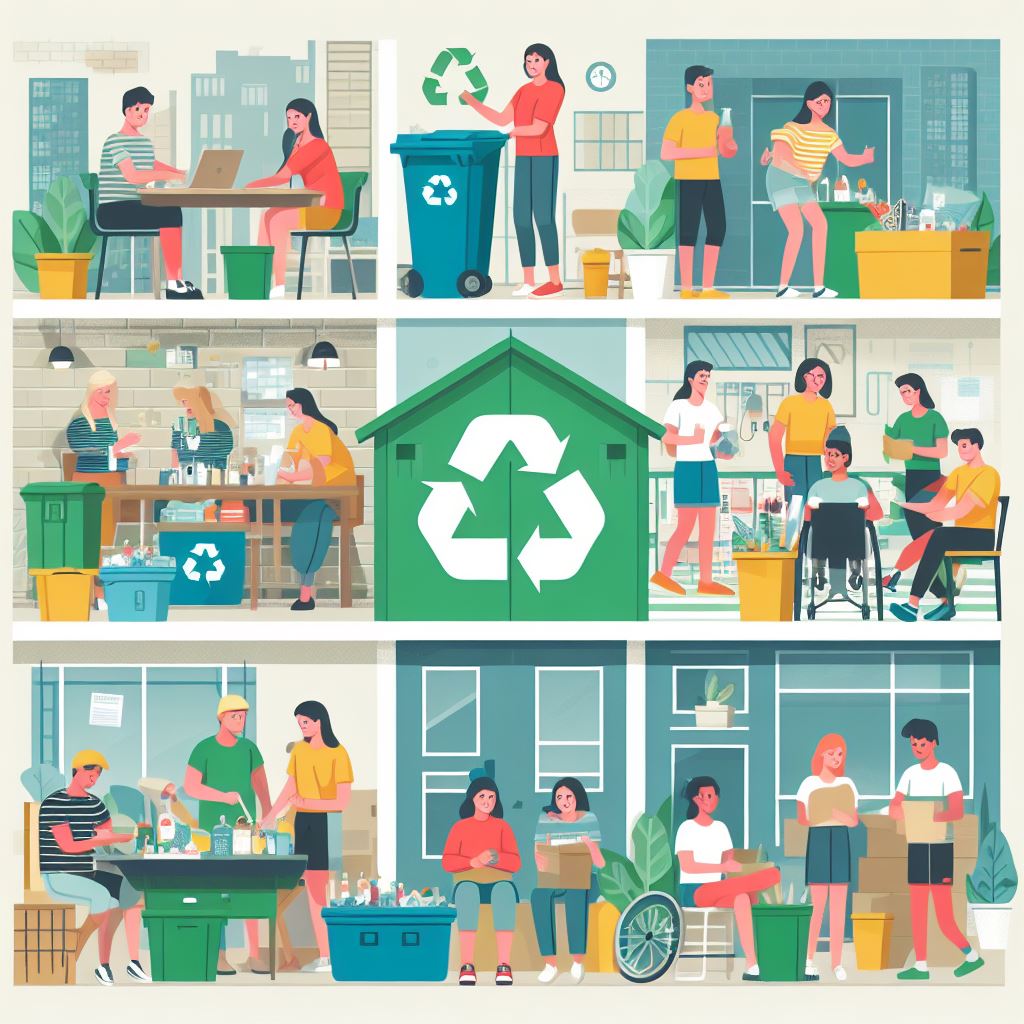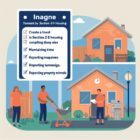Guiding Tenants: Navigating Duties in Public Housing

Imagine yourself as a tenant in public housing, navigating the responsibilities that come with it. Lease agreements, rent payments, maintenance issues, community rules – it can be overwhelming.
But fear not, for this article will serve as your guiding light. Here, you will find valuable insights on understanding lease agreements, paying rent and utilities, reporting maintenance issues, respecting community rules, and engaging in community activities.
So, let’s embark on this journey together and unlock the secrets to successfully navigating your duties in public housing.
Key Takeaways
- Familiarize yourself with the terms and conditions outlined in your lease agreement, including rent payment, maintenance responsibilities, and lease duration.
- Pay rent and utilities promptly, understanding the specific requirements and due dates outlined in the lease agreement.
- Report any maintenance issues promptly to the property management office or designated hotline, providing detailed information and documentation if necessary.
- Respect community rules and policies, including noise restrictions, cleanliness standards, and waste disposal, while also engaging in community activities to contribute positively to the neighborhood.
Understanding Lease Agreements
To fully understand your responsibilities as a tenant in public housing, it’s crucial to familiarize yourself with the terms and conditions outlined in your lease agreement. This document serves as a legally binding contract between you and the housing authority, outlining the rights and obligations of both parties.
When reviewing your lease agreement, pay close attention to the sections that address rent payment, maintenance responsibilities, and the duration of the lease. These are essential aspects that will directly impact your experience as a tenant. Understanding your financial obligations, such as the amount of rent and when it’s due, will help you plan your budget effectively.
Additionally, the lease agreement will outline your maintenance responsibilities, which may include keeping the premises clean and reporting any damages promptly. Knowing what’s expected of you in terms of upkeep will ensure a harmonious living environment for all residents.
Lastly, familiarize yourself with the duration of your lease. This will determine the length of time you’re obligated to stay in the public housing unit. It’s important to abide by this timeframe to avoid any legal complications.
Paying Rent and Utilities
As a tenant in public housing, you’re responsible for promptly paying your rent and utilities to maintain your tenancy. Paying rent and utilities is a crucial aspect of being a responsible tenant. It’s essential to understand the terms of your lease agreement and the specific requirements for paying rent and utilities.
Typically, rent is due on a specific date each month, and failure to pay on time may result in late fees or even eviction. To avoid any complications, it’s advisable to set up automatic payments or reminders to ensure timely payment.
Additionally, it’s important to understand your responsibilities regarding utilities. Some rental agreements include utilities in the rent, while others require tenants to pay for them separately. It’s crucial to clarify this with your landlord to avoid any confusion.
Keeping up with your rent and utility payments not only ensures a smooth tenancy but also helps maintain a positive relationship with your landlord and fellow tenants. By fulfilling this duty, you contribute to the well-being and sustainability of your public housing community.
Reporting Maintenance Issues
You are responsible for promptly reporting any maintenance issues that arise in your public housing unit. Reporting maintenance issues is crucial to ensure that repairs are addressed in a timely manner and to maintain a safe and comfortable living environment for yourself and other tenants.
When you encounter a maintenance problem, such as a leaky faucet, a broken window, or a malfunctioning electrical outlet, it’s important to inform the appropriate authorities as soon as possible.
To report a maintenance issue, you should contact your property management office or the designated maintenance hotline provided to you. Be prepared to provide detailed information about the problem, including the location and nature of the issue. It’s helpful to take photographs or videos documenting the problem, as this can assist the maintenance staff in understanding the issue and determining the necessary repairs.
Respecting Community Rules and Policies
When abiding by community rules and policies in public housing, it’s important to respect the guidelines set forth by the governing authorities. These rules and policies are put in place to ensure a safe and harmonious living environment for all residents. By respecting these rules, you contribute to the overall well-being of the community.
Respecting community rules means adhering to regulations such as noise restrictions, cleanliness standards, and proper waste disposal. It’s important to be mindful of your actions and how they may affect your neighbors. By keeping noise levels down and maintaining cleanliness in shared spaces, you show respect for the rights and comfort of others.
Additionally, it’s crucial to comply with policies regarding the use of common areas and facilities. Follow any reservation procedures or time restrictions to allow equal access for all residents. Be considerate of others’ needs and prioritize shared spaces’ cleanliness and maintenance.
Non-compliance with community rules and policies may result in penalties or even eviction. Therefore, it’s essential to familiarize yourself with these guidelines and seek clarification if needed. Remember, by respecting community rules and policies, you actively contribute to a positive living environment for yourself and your neighbors.
Engaging in Community Activities
Get involved in community activities to enhance your public housing experience. Engaging in community activities not only allows you to connect with your neighbors but also contributes to building a stronger and more vibrant community. By participating in these activities, you can foster a sense of belonging, develop new skills, and create lasting relationships. Below is a table showcasing some community activities you can consider getting involved in:
| Activity | Description |
|---|---|
| Neighborhood clean-up | Join your neighbors in cleaning and beautifying your community |
| Community garden | Help maintain and cultivate a communal garden |
| Youth programs | Volunteer your time to mentor and support local youth |
| Neighborhood watch | Join a neighborhood watch program to ensure safety |
| Social events | Attend community events such as block parties and picnics |
Frequently Asked Questions
What Are the Income Requirements for Public Housing Eligibility?
To find out if you’re eligible for public housing, you’ll need to meet certain income requirements. These requirements vary depending on the specific program and location, so it’s best to contact your local public housing agency for more information.
How Do I Apply for Public Housing?
To apply for public housing, you’ll need to contact your local housing authority. They will provide you with an application form and guide you through the process. Make sure to gather all necessary documents beforehand.
Can I Have Pets in Public Housing?
Yes, you can have pets in public housing. However, there may be certain restrictions and guidelines you need to follow. It’s important to check with your housing authority to understand the specific rules.
What Happens if I Can’t Pay My Rent on Time?
If you can’t pay your rent on time in public housing, you may face consequences such as late fees or eviction. It’s important to communicate with your landlord and seek assistance if needed to avoid these potential issues.
Are There Any Restrictions on the Number of Guests I Can Have in My Public Housing Unit?
You can have guests in your public housing unit, but there may be restrictions on the number. It’s important to check with your public housing authority to understand their specific rules and guidelines.



